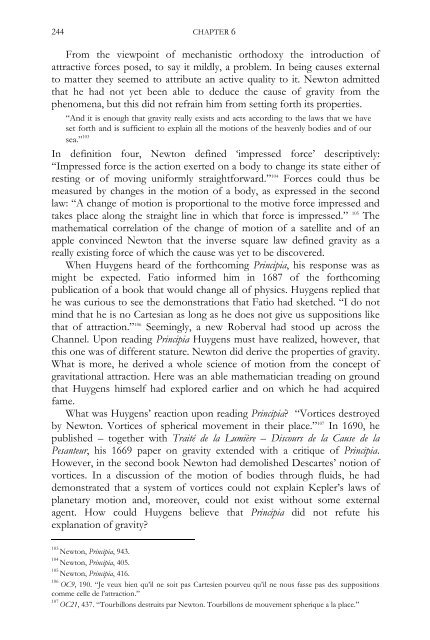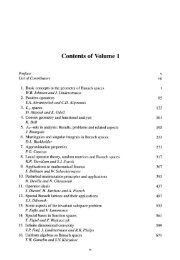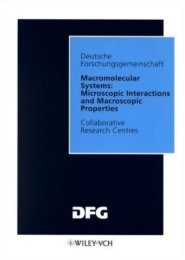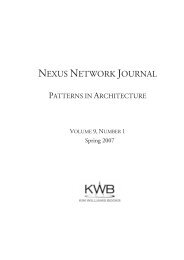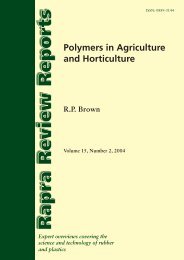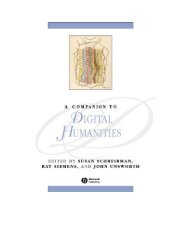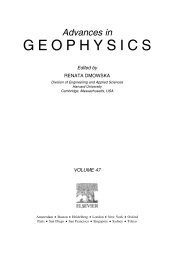Lenses and Waves
Lenses and Waves
Lenses and Waves
You also want an ePaper? Increase the reach of your titles
YUMPU automatically turns print PDFs into web optimized ePapers that Google loves.
244 CHAPTER 6<br />
From the viewpoint of mechanistic orthodoxy the introduction of<br />
attractive forces posed, to say it mildly, a problem. In being causes external<br />
to matter they seemed to attribute an active quality to it. Newton admitted<br />
that he had not yet been able to deduce the cause of gravity from the<br />
phenomena, but this did not refrain him from setting forth its properties.<br />
“And it is enough that gravity really exists <strong>and</strong> acts according to the laws that we have<br />
set forth <strong>and</strong> is sufficient to explain all the motions of the heavenly bodies <strong>and</strong> of our<br />
sea.” 103<br />
In definition four, Newton defined ‘impressed force’ descriptively:<br />
“Impressed force is the action exerted on a body to change its state either of<br />
resting or of moving uniformly straightforward.” 104 Forces could thus be<br />
measured by changes in the motion of a body, as expressed in the second<br />
law: “A change of motion is proportional to the motive force impressed <strong>and</strong><br />
takes place along the straight line in which that force is impressed.” 105 The<br />
mathematical correlation of the change of motion of a satellite <strong>and</strong> of an<br />
apple convinced Newton that the inverse square law defined gravity as a<br />
really existing force of which the cause was yet to be discovered.<br />
When Huygens heard of the forthcoming Principia, his response was as<br />
might be expected. Fatio informed him in 1687 of the forthcoming<br />
publication of a book that would change all of physics. Huygens replied that<br />
he was curious to see the demonstrations that Fatio had sketched. “I do not<br />
mind that he is no Cartesian as long as he does not give us suppositions like<br />
that of attraction.” 106 Seemingly, a new Roberval had stood up across the<br />
Channel. Upon reading Principia Huygens must have realized, however, that<br />
this one was of different stature. Newton did derive the properties of gravity.<br />
What is more, he derived a whole science of motion from the concept of<br />
gravitational attraction. Here was an able mathematician treading on ground<br />
that Huygens himself had explored earlier <strong>and</strong> on which he had acquired<br />
fame.<br />
What was Huygens’ reaction upon reading Principia? “Vortices destroyed<br />
by Newton. Vortices of spherical movement in their place.” 107 In 1690, he<br />
published – together with Traité de la Lumière – Discours de la Cause de la<br />
Pesanteur, his 1669 paper on gravity extended with a critique of Principia.<br />
However, in the second book Newton had demolished Descartes’ notion of<br />
vortices. In a discussion of the motion of bodies through fluids, he had<br />
demonstrated that a system of vortices could not explain Kepler’s laws of<br />
planetary motion <strong>and</strong>, moreover, could not exist without some external<br />
agent. How could Huygens believe that Principia did not refute his<br />
explanation of gravity?<br />
103<br />
Newton, Principia, 943.<br />
104<br />
Newton, Principia, 405.<br />
105<br />
Newton, Principia, 416.<br />
106<br />
OC9, 190. “Je veux bien qu’il ne soit pas Cartesien pourveu qu’il ne nous fasse pas des suppositions<br />
comme celle de l’attraction.”<br />
107<br />
OC21, 437. “Tourbillons destruits par Newton. Tourbillons de mouvement spherique a la place.”


